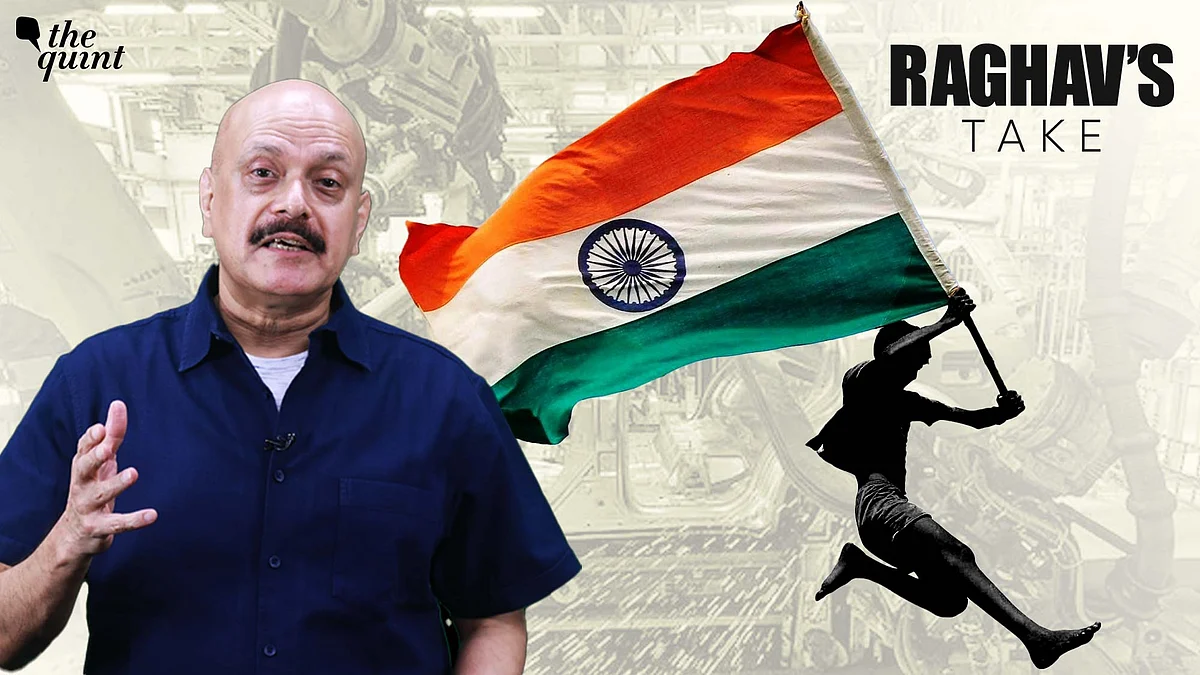Politics
India’s Economic Resilience Amidst Trump’s Tariff Challenges

India stands at a crossroads as it navigates its economic relationship with the United States, particularly in light of recent tariff policies introduced under former President Donald Trump. Historically, India and the U.S. have evolved from being economic supplicants to strategic partners, fostering a relationship that has significantly benefited both nations. This partnership, however, faced challenges as Trump’s administration implemented tariffs, reshaping the dynamics of trade and investment.
From Cold War Adversaries to Economic Allies
Throughout the mid-20th century, India was largely viewed as a developing nation reliant on foreign aid for food and military support. As the Cold War unfolded, India adopted a more independent stance, culminating in significant milestones like the 1974 nuclear test and the establishment of a self-sufficient agricultural sector through the Green Revolution. By the 1990s, with the collapse of the Soviet Union, India pivoted towards liberalization, opening its economy to foreign investment, particularly from the United States.
This shift transformed India into one of the fastest-growing large economies globally. The country became a significant source of talent for the American technology sector, contributing to the H1B visa program and sending a substantial number of students to U.S. universities. Indian graduates from prestigious institutions like IIT and IIM have since taken leadership roles in major multinationals, solidifying the economic ties between the two nations.
Challenges Under Trump’s Tariff Policies
The landscape changed dramatically with Trump’s administration, which introduced tariffs that affected numerous trading partners, including India. This shift created a sense of vulnerability among Indian exporters, students, and professionals who had thrived under a relatively open trading environment. The sentiment among those who rely on the U.S. market is one of uncertainty, as they ponder how to compete against a nation that has historically been their ally.
“How can we compete with America, our biggest benefactor?”
Despite the challenges posed by tariff policies, many analysts argue that India’s economic fundamentals remain strong. The country boasts a burgeoning digital economy and a dynamic workforce, positioning it well to adapt to changing global trade dynamics. The recent experiences of investors also highlight the resilience of the Indian market.
For instance, one entrepreneur recently identified a valuable investment opportunity in a struggling Nasdaq-listed newspaper company facing significant challenges in transitioning to a digital-only model. Despite the hurdles, the entrepreneur saw potential synergies between the Indian and American markets, leading to a strategic investment decision under India’s liberal Overseas Direct Investment (ODI) policy.
However, upon signaling the intention to acquire shares, the entrepreneur encountered unexpected resistance in the form of a “poison pill” strategy, a defense mechanism employed by the target company to prevent hostile takeovers. This experience starkly contrasted with India’s more progressive regulations that protect minority shareholders and facilitate fairer market practices.
While the U.S. regulatory environment is often seen as pro-management, Indian regulations promote a more equitable marketplace, allowing for greater shareholder rights and protections. This fundamental difference illustrates how India is crafting modern regulatory frameworks that can withstand external pressures, including those from the U.S.
As India continues to assert itself on the global economic stage, the focus should remain on leveraging its strengths rather than succumbing to fears stemming from foreign policies. The collaboration established over the years has proven beneficial, and India’s ongoing development, driven by innovation and technological advancement, will shape its future trajectory.
Rather than feeling overwhelmed by the challenges posed by Trump’s tariffs, India is encouraged to fortify its economic strategies and continue building on its successes. With a robust digital economy and a commitment to fair market practices, India can maintain its position as a significant player in the global arena, navigating the complexities of international relations with confidence and resilience.
-

 World5 months ago
World5 months agoSBI Announces QIP Floor Price at ₹811.05 Per Share
-

 Lifestyle5 months ago
Lifestyle5 months agoCept Unveils ₹3.1 Crore Urban Mobility Plan for Sustainable Growth
-

 Science4 months ago
Science4 months agoNew Blood Group Discovered in South Indian Woman at Rotary Centre
-

 World5 months ago
World5 months agoTorrential Rains Cause Flash Flooding in New York and New Jersey
-

 Top Stories5 months ago
Top Stories5 months agoKonkani Cultural Organisation to Host Pearl Jubilee in Abu Dhabi
-

 Sports4 months ago
Sports4 months agoBroad Advocates for Bowling Change Ahead of Final Test Against India
-

 Science5 months ago
Science5 months agoNothing Headphone 1 Review: A Bold Contender in Audio Design
-

 Top Stories5 months ago
Top Stories5 months agoAir India Crash Investigation Highlights Boeing Fuel Switch Concerns
-

 Business5 months ago
Business5 months agoIndian Stock Market Rebounds: Sensex and Nifty Rise After Four-Day Decline
-

 Sports4 months ago
Sports4 months agoCristian Totti Retires at 19: Pressure of Fame Takes Toll
-

 Politics5 months ago
Politics5 months agoAbandoned Doberman Finds New Home After Journey to Prague
-

 Top Stories5 months ago
Top Stories5 months agoPatna Bank Manager Abhishek Varun Found Dead in Well









